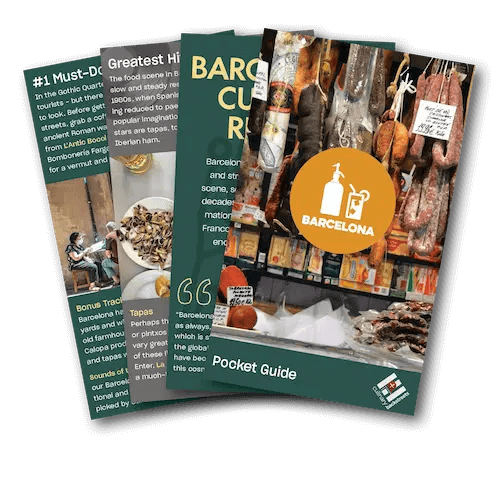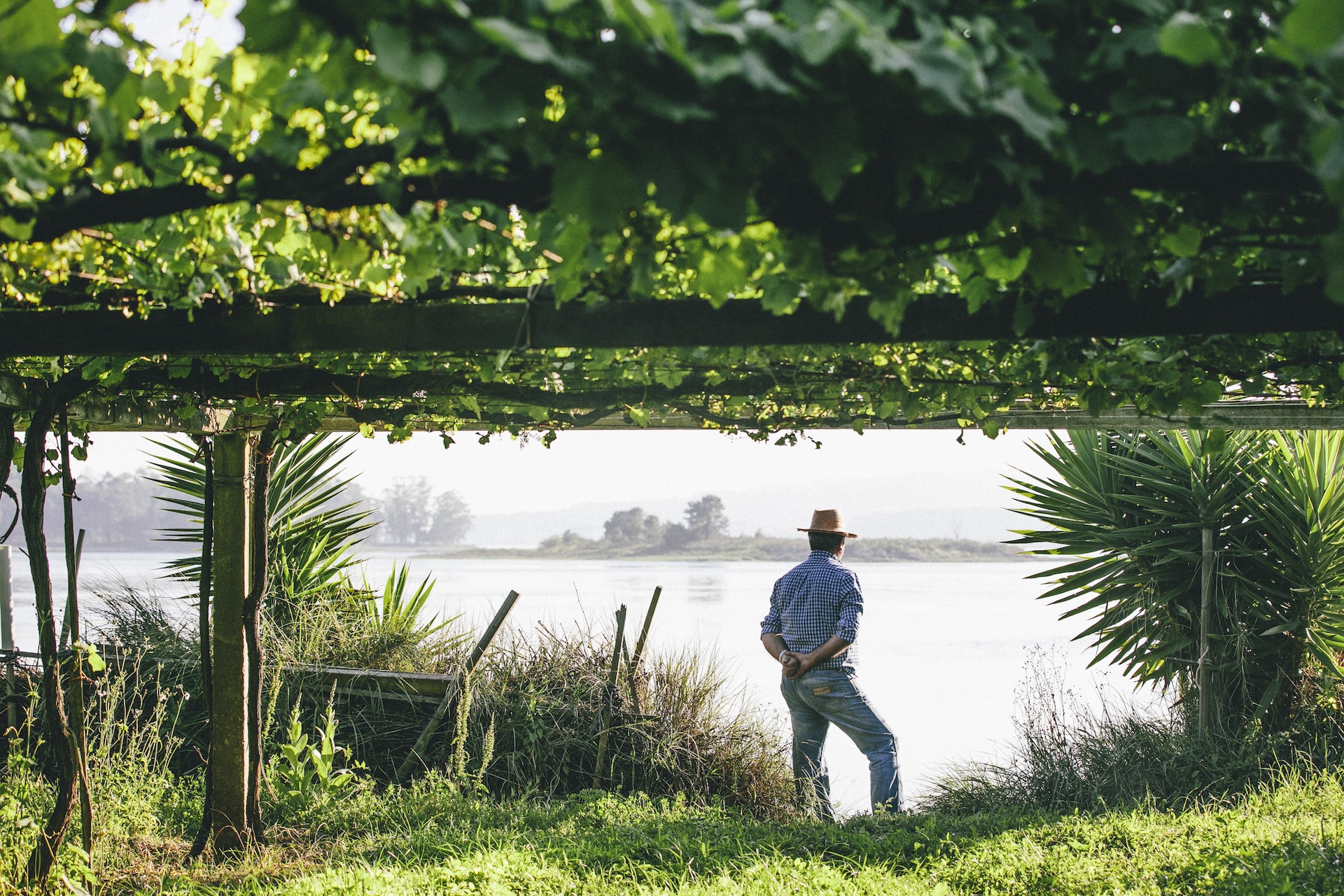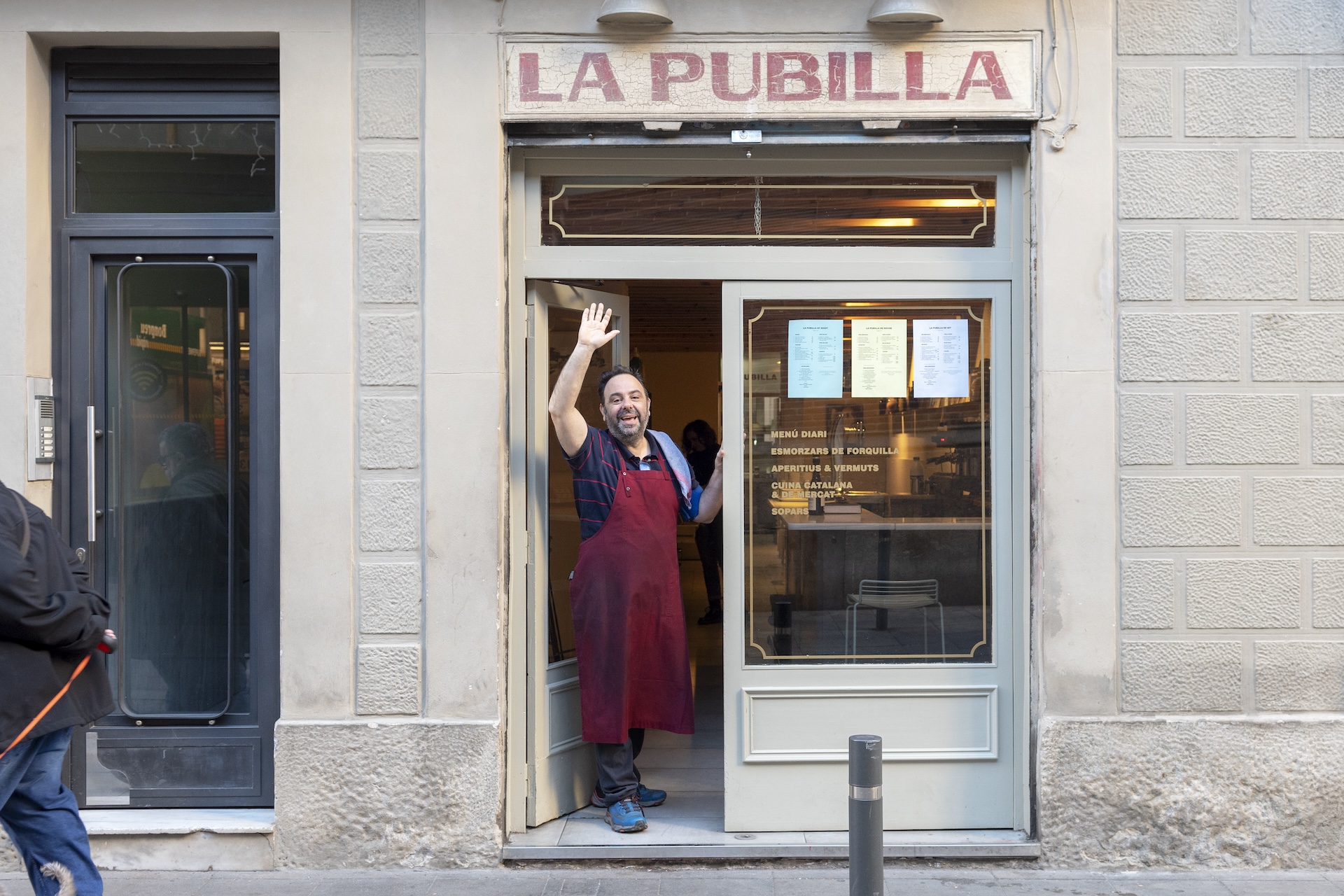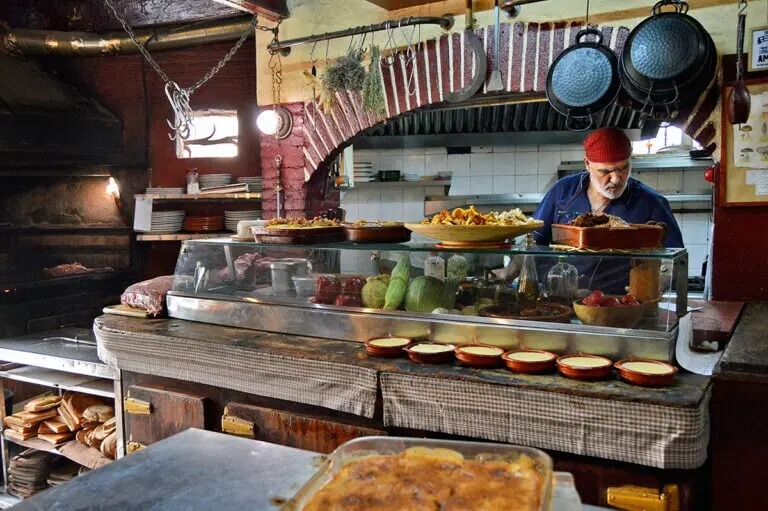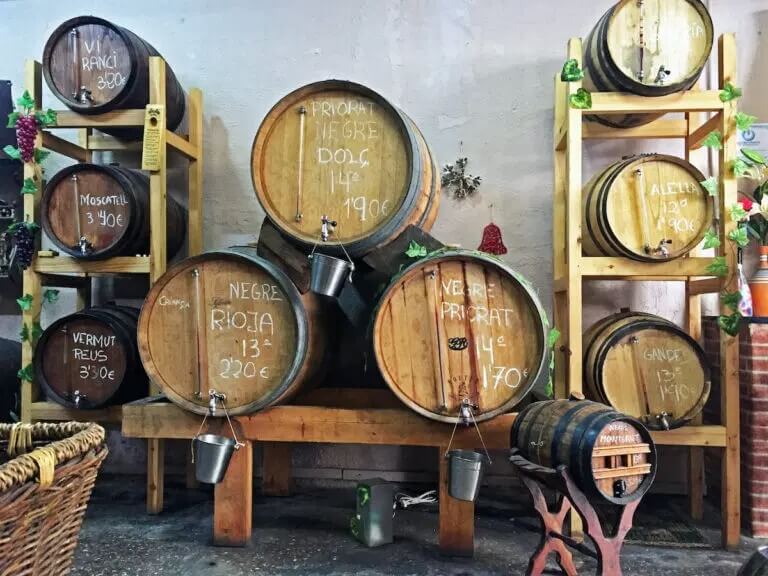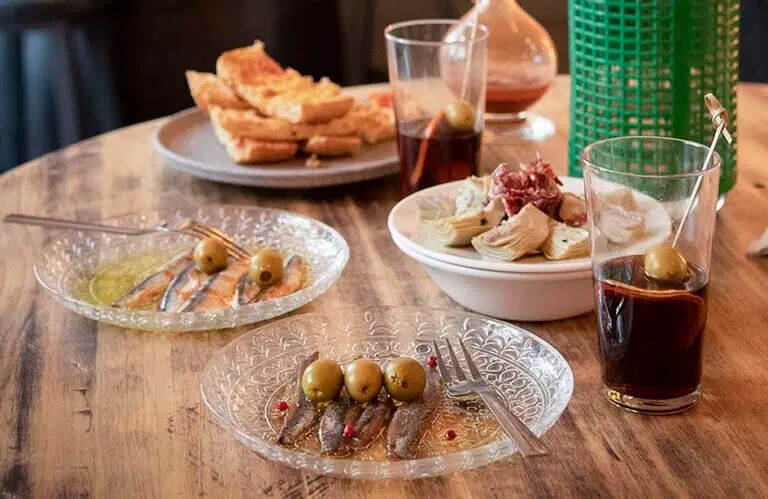El Passadís del Pep-that leads to the restaurant, you don’t need to do anything, and that includes choosing what to eat. From the moment you sit down, the “house” offers you your first bottle of cava, and the celebration of food and life begins. There is no menu and there are no “daily specials,” just whatever Joan Manubens and his team decide to cook that day. The restaurant, whose name means “Pep’s Corridor,” specializes in cocina de mercado, or market cuisine, prepared in a simple, traditional Mediterranean style. As if in a ballet, the show begins when the waiters start to dance around you and the food arrives at the table in a continuous flow of abundance: Iberian cured ham, anchovies, typical Catalan bread rubbed with tomato; sautéed baby squid with rice and garlic; choice shellfish such as cañaíllas (a kind of sea snail) prepared in such a delicate way that all the natural flavor is retained; velvet crabs or spider crabs cooked without any ingredient that could detract from their natural essence. The long first act ends and the second act begins. Stewed chickpeas with ham, artichokes and Basque peppers in olive oil might appear on your table, or perhaps a delicious stew of wild rabbit with mushrooms. Or how about caldereta de bogavante, a traditional dish with squid and clams in olive oil, a tiny touch of garlic, parsley and a little bit of lard to add intensity and richness to the flavors, all of which complement the star of the dish: a fresh lobster from the Bay of Biscay, cooked in salted water or even seawater. The meal reaches a climax thanks to the excellent wine cellar. The choice of wine-whether a classic Rioja, a refreshing Verdejo D.O. Rueda or a top Catalan wine D.O. Priorat-is the only aspect of the meal that is left up to you. The “house” will also make recommendations of wine pairings but you are given the “freedom to combine them as you like.” The important thing here is to enjoy the meal, which the warm, comfortable atmosphere encourages. El Passadís is relatively expensive (about €80 per person, excluding wine and extra dishes), the place is hard to find, the cooking is simple, and you can’t choose what you want to eat… What is the venue’s secret? Manubens explain that for 30 years he has offered the same thing to his guests as to his friends: a way to enjoy food. But behind the simplicity of the recipes there is something that is not always so easy to get: the best ingredients, of the highest possible quality-everything is always fresh. To make this possible in a restaurant of four hundred square meters, Manubens takes risks, betting everything on a shopping cart’s worth of ingredients purchased that day. Shrimp and crabs come from Galicia, where they are known for their taste and texture, while lobsters come from the Bay of Biscay, espardeñas (sea cucumbers) from the Mediterranean, and the best wild fish from the North Sea. With raw materials of this caliber, a highly sophisticated cooking process is not necessary. Manubens cooks the way his mother Pilar, who previously headed the kitchen staff, taught him, bringing out the natural flavors of the ingredients through traditional recipes, basic preparations and slow cooking times. But there is also a personal touch that seems to run in the family, something that may be harder to define. When curious patrons or friends ask about a recipe, Manubens always answers with the same words that his mother used to say to him: “Do you like it? Are you enjoying it? That’s the important thing!” Perhaps this talent of charming guests and converting them into friends is another secret ingredient that goes into the simple pleasures to be found at Passadís. By Paula Mourenza, photos by Paula Mourenza RELATED STORIES El Passadís del Pep: Simple Pleasures BARCELONA | By Paula Mourenza Sagàs: Hands-On Cuisine BARCELONA | By JOHANNA BAILEY Sagàs: Hands-On Cuisine BARCELONA | By JOHANNA BAILEY El Passadís del Pep Plà de Palau 2, El Born

